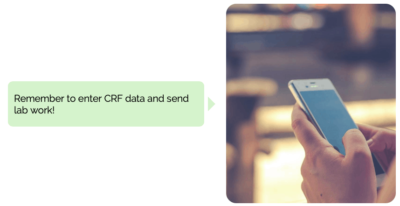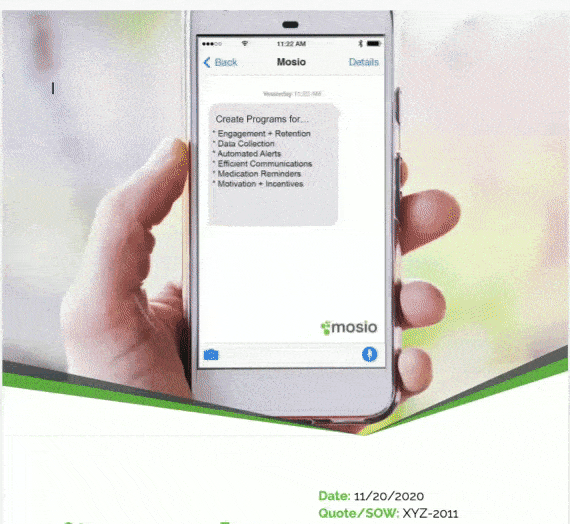Stop Doing These Manual Tasks in Your Research Projects
With a myriad of tasks to manage each day and unique situations that arise at a moment’s notice, the role of a principal investigator or research coordinator is certainly a busy one.
In the past, researchers had no choice but to perform all study-related tasks manually, including calling participants with appointment and medication reminders or creating mass emails to send out surveys. In addition to taking up precious time, telephone and email communication are costly and also tend to yield poor results, so why not take advantage of a text service to automate certain aspects of your research?
Here are a few ways that text messaging can help lift the burden off of you and your staff.
Collecting Data
Although surveys, participant journals and questionnaires provide you with essential clinical data, making sure each participant receives the necessary tasks on the right schedule can be time-consuming.
Automated texts give you the ability to create your desired messages one time and use them over and over, sparing you from having to input the same parameters into your data system every time you add a new participant. Your texts can include one of a variety of short survey formats, or you can send journal prompts and links to fill out lengthier forms.
Once you’ve drafted your messages, choose a time-based, calendar-based or event-triggered delivery schedule, and the system takes care of the rest.
Communicating
If your study requires specific interventions, assistance, shared information, or last minute updates, each touch point costs you time.
If your study has more than 50 participants, the timing of communications can be a massive time suck.
We realize that sometimes study protocols call for in-person site visits or even telephone interviews. In all other ways, automated text messaging not only saves you time, it helps to improve engagement and adherence, even ensuring subjects answer the phone when it’s time for your interview.
Reminding Participants About Appointments
Ensuring that your participants attend their scheduled meetings is an important part of your job as a research coordinator, but trying to reach every participant by telephone is time-consuming and often ineffective.
Appointment reminder texts can deliver dual benefits: Not only will sending an automated text free you from your telephone, but a text message is also far more likely to reach your intended recipient than either a phone call or a voicemail.
Appointment Reminders
Reminding Subjects to Take Medications (or to Complete Any Task)
Medication adherence, or the lack of it, can significantly impact your study’s accuracy and costs. Dosing reminder texts are the perfect way to help your participants follow their prescribed medication schedule with a minimal time commitment on your part.
There are medication reminder apps to remind patients to take their medicine, but they may require a separate app to download and manage, without handling additional communication functions, the ability to collect study data, etc. Text messaging is the medication reminder app that isn’t an app at all.
However, maybe your study doesn’t involve medicine. Or even patients. Each required participant activity means additional work for you or your team to ensure they complete those desired tasks.
Communication technologies are most useful when they fit your workflow processes, providing you with customization and flexibility, regardless of your protocol requirements.
Bonus Use Case: Study Team Reminders
While text messaging can be invaluable for efficient communication with your research participants, the benefits of text also extend to include your study team.
Whether you’re a principal investigator or research coordinator, your professional duties and commitments go beyond strictly study-related tasks. Using automated text messages can be a great way for you to easily and efficiently remind your staff of task deadlines or communicate group messages.
Conclusion: Automate Whenever Possible
You’ll never be able to fully automate your research, but the truth is that you probably don’t want to. Whether your passion is working in the lab, spending time interacting with your study participants, or examining the data, automating as many small tasks as possible can free up more time, money and resources for doing what you love. See how text messaging can help you eliminate tedious tasks and automate your study communications.








